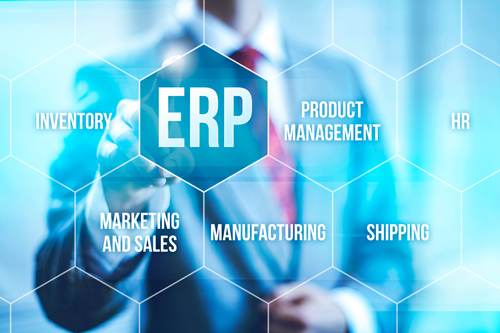Moving ERP systems is no easy task, and which system to move to is not…

Compare Acumatica vs NetSuite Review
Buying a new ERP system is a major decision that will affect your business for many years. If you’ve done your research, you’ve probably found conflicting information. For many businesses, the decision comes down to deciding between NetSuite and Acumatica. Which one do you choose? After all:
- Both Acumatica and NetSuite offer cloud-based SaaS ERP applications
- Both integrate ERP, CRM, eCommerce, and BI
- Both support a variety of vertical industries, from retail to distribution to manufacturing
Here’s how they compare:
| Functionality | Acumatica | NetSuite |
| True cloud (built for cloud)* | ||
| True mobility (all devices/no special apps) | ||
| Full function ERP | ||
| Full relational database export | ||
| Customization using industry standard tools | ||
| Upgrade on your schedule | ||
| Flexible licensing options (subscription and perpetual) | ||
| Multiple deployment options (cloud, on premise, hybrid) | ||
| Scale as you grow | ||
| Lower Total Cost of Ownership (TCO) |
*“True cloud” means all functionality is accessible through the internet using a standard browser without the need for additional software licensing or client apps.
Significant Differentiators between Acumatica and NetSuite
Full relational database export: NetSuite users cannot directly export their data in a relational format, making it difficult and costly to migrate their data off NetSuite servers. Acumatica will never hold your data hostage – both our built-in automated backup service plus our snapshot feature allow you to have a fully relational copy of your data at any time.
Customizations using industry standard tools: Both products are highly configurable, but Acumatica is built using industry standard C# and .NET. NetSuite uses proprietary development tools, making customizations more difficult.
Upgrade on your schedule: To support their required multi-tenant model, NetSuite upgrades all users at the same time, which may not be convenient for everyone. Acumatica provides users the option to upgrade at any time they choose; NetSuite charges users for this option.
Flexible licensing options: Every company is different, and some prefer a depreciable capital expense versus an ongoing operating expense. Both products are available through subscription licensing, but Acumatica also offers perpetual licensing. Check Acumatica ERP Pricing.
Multiple deployment options (cloud, on premise, hybrid): Deployment options include public cloud (like Amazon Web Services), on your premise, and hybrid configurations (private cloud). While both products are available in the cloud, Acumatica also supports on premise and hybrid deployments for companies that want to keep sensitive data in-house.
TCO: Both products charge by computing power used, but NetSuite also charges per user. These costs increase as your company grows, increasing your total cost of ownership over time. Acumatica never charges per user.
About NetSuite
Established in 1998, NetSuite is the largest true cloud ERP vendor. NetSuite went public in 2007, and since then have never been profitable (GAAP). In spite of continued losses, NetSuite continues to invest heavily on Sales and Marketing, spending nearly three times as much than it does on Product Development. In 2016, Oracle tendered an offer to purchase NetSuite that is currently waiting resolution.
Conversely, Acumatica was designed from the start to be accessible both through the cloud and on premise using current technology. We offer access to your data anytime, flexible licensing options, and no cost for adding users, lowering your company’s TCO.
In the end, though, the decision is yours. We encourage you to evaluate both products and ask questions. If you decide on NetSuite, you will not have made the wrong decision. We just think you could have made a better one.
Check out the full review here






